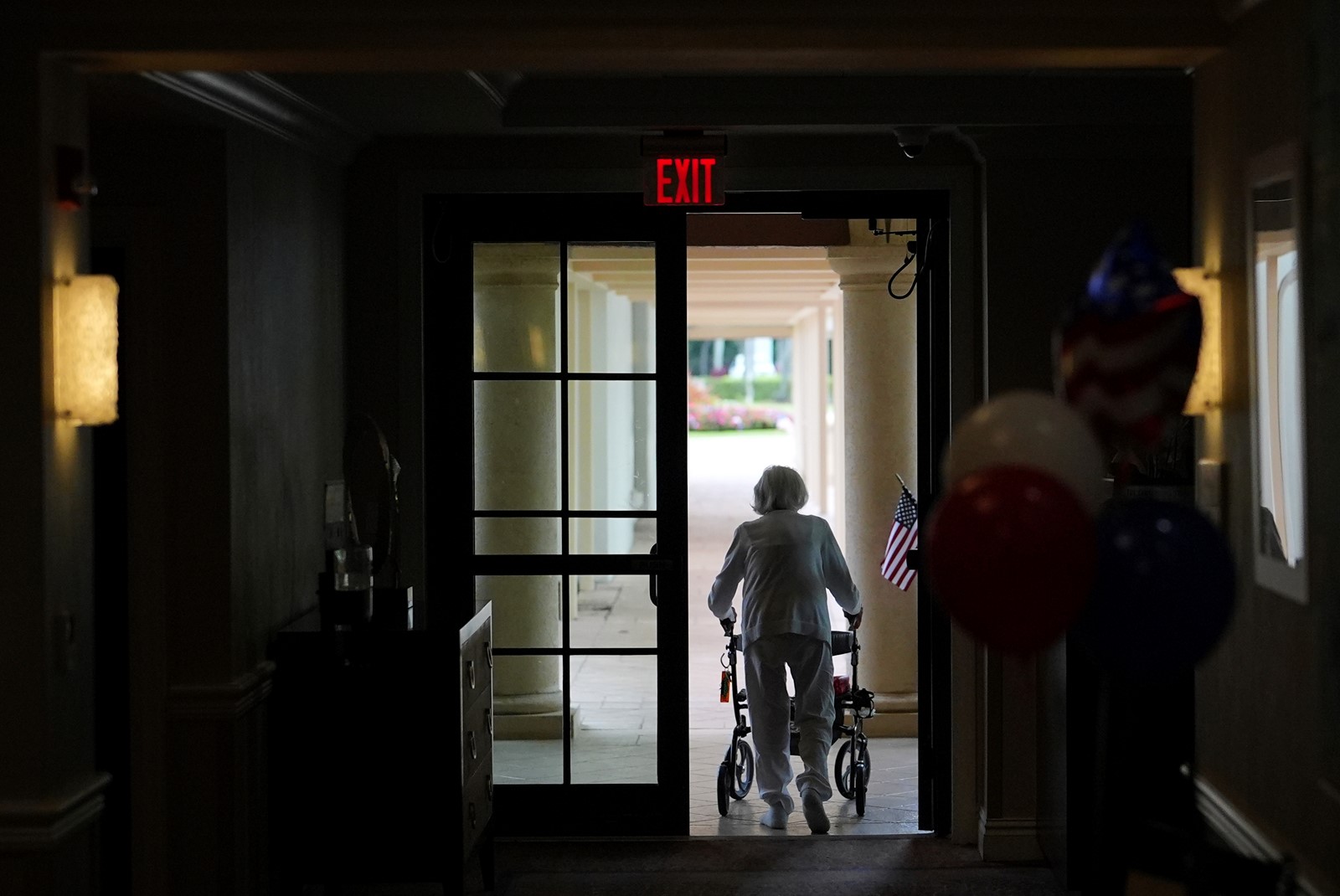
NEW YORK — Nursing homes already struggling to recruit staff are now grappling with President Donald Trump’s attack on one of their few reliable sources of workers: immigration.
Facilities for older adults and disabled people are reporting the sporadic loss of employees who have had their legal status revoked by Trump. But they fear that even more dramatic impacts are ahead as pipelines of potential workers slow to a trickle with an overall downturn in legal immigration.
“We feel completely beat up right now,” says Deke Cateau, CEO of A.G. Rhodes, which operates three nursing homes in the Atlanta area, with one-third of the staff made up of foreign-born people from about three dozen countries. “The pipeline is getting smaller and smaller.”
Eight of Cateau’s workers are expected to be forced to leave because their Temporary Protected Status was revoked. TPS allows people already living in the U.S. to stay and work legally if their home countries are unsafe due to civil unrest or natural disasters; during the Biden administration, the designation was expanded to cover people from a dozen countries, including Venezuela and Haiti.
While those with TPS represent a tiny minority of A.G. Rhodes’ 500 staffers, Cateau says they will be “very difficult, if not impossible, to replace,” and he worries what comes next.
“It may be eight today, but who knows what it’s going to be down the road,” says Cateau, an immigrant who arrived from Trinidad and Tobago 25 years ago.
One in 5 civilian workers in the U.S. is foreign-born, according to the Bureau of Labor Statistics, but as in construction, agriculture and manufacturing, immigrants are overrepresented in caregiving roles. More than a quarter of an estimated 4 million nursing assistants, home health aides, personal care aides and other so-called direct care workers are foreign-born, according to PHI, a nonprofit focused on the caregiving workforce.
The aging of the baby-boom generation is poised to fuel even more demand for caregivers, both in institutional settings and in individuals’ homes. BLS projects more growth among home health and personal care aides than any other job, with 820,000 new positions added by 2032.
Nursing homes, assisted- living facilities, home health agencies and other such businesses were counting on immigrants to fill many of those roles, so Trump’s return to the White House and his administration’s attack on nearly all forms of immigration has sent a chill throughout the industry.
Katie Smith Sloan, CEO of LeadingAge, which represents nonprofit care facilities, says homes around the country have been affected by the immigration tumult. Some have reported employees who have stopped coming to work, fearful of a raid, even though they are legally in the country.
Others have workers who are staying home with children they have kept out of school because they worry about roundups. Many others see a slowdown of job applicants.
“This is just like a punch in the gut,” she says.
Rachel Blumberg, CEO of the Toby and Leon Cooperman Sinai Residences in Boca Raton, Florida, has already lost 10 workers whose permission to stay in the U.S. came under a program known as humanitarian parole, which had been granted to people from Cuba, Haiti, Nicaragua and Venezuela.
She is slated to lose 30 more in the coming weeks with the end of TPS for Haitians.
“I think it’s the tip of the iceberg,” Blumberg says, forecasting further departures of employees who may not themselves be deported but whose spouse or parent is forced to leave.
Blumberg got less than 24 hours’ notice when her employees lost their work authorization, setting off a scramble to fill shifts. She has already boosted salaries and referral bonuses but says it will be difficult to replace not just aides, but maintenance workers, dishwashers and servers.
Front-line caregivers are overwhelmingly female and a majority are members of minority groups, according to PHI, earning an average of $16.72 hourly in 2023.
Long-term care homes saw an exodus of workers as COVID-19 made an already-challenging workplace even more so.
Some facilities were beginning to see employment normalize to pre-pandemic levels just as the immigration crackdown hit, although there is still a shortage of workers.
Some in the industry have watched in frustration as Trump lamented how businesses including farming and hospitality could be hurt by his policies, wondering why those who clean hotel rooms or pick tomatoes deserve more attention than those who care for elders.
Beyond rescinded work authorizations for people living in the U.S., care homes are having difficulty getting visas approved for registered nurses and licensed practical nurses they recruit abroad.
What used to be a simple process now stretches so long that candidates reconsider the United States altogether, says Mark Sanchez, chief operating officer of United Hebrew, a nursing home in New Rochelle, New York.
“There are lines upon lines upon lines,” Sanchez says, “and now they’re saying, ‘I’m going to go to Canada,’ and ‘I’m going to go to Germany, and they’re welcoming me with open arms.’ ”


 PREVIOUS ARTICLE
PREVIOUS ARTICLE
